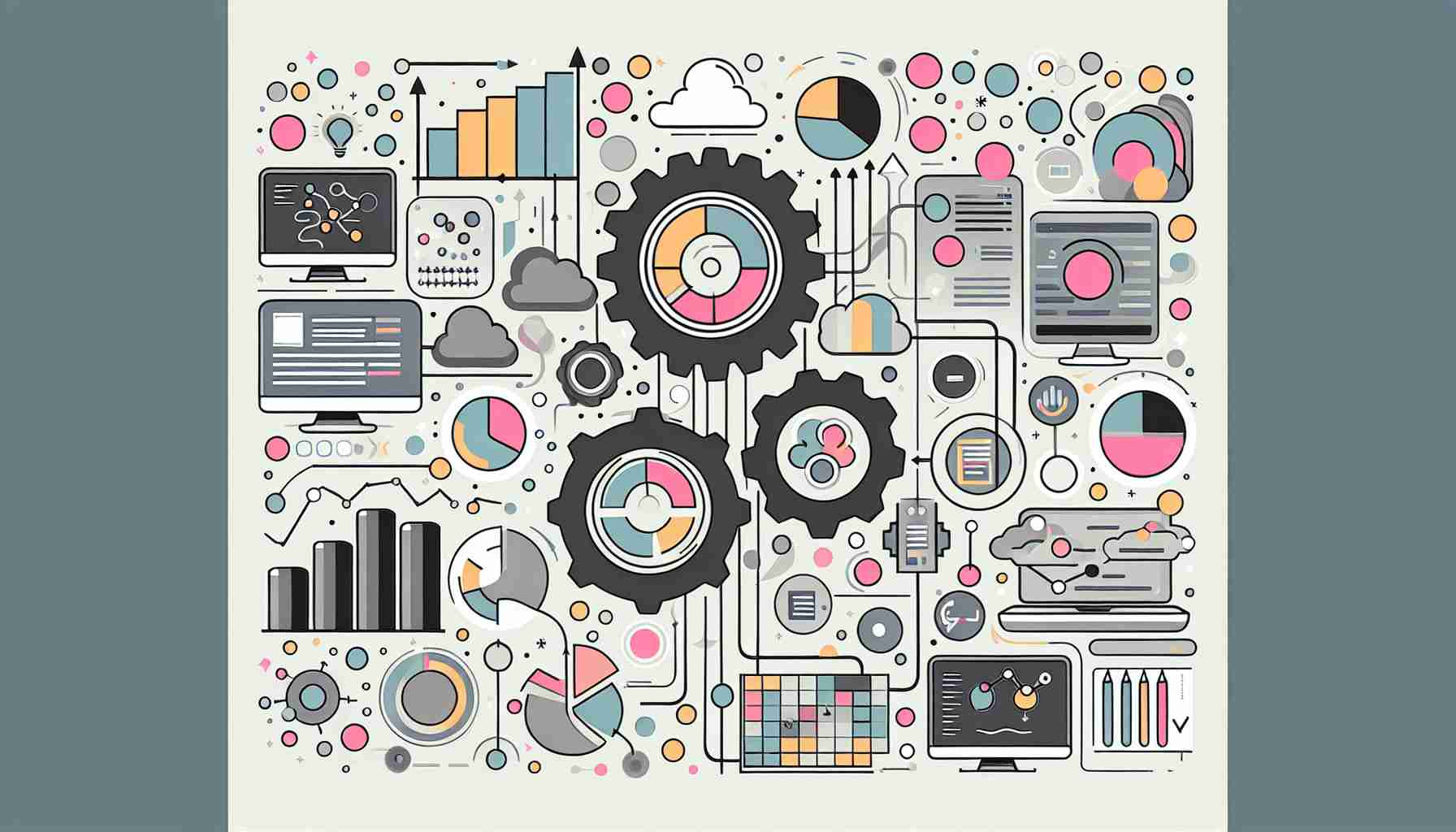DataOps The Agile Approach to Data Analytics

DataOps Briefly Summarized
- DataOps is a collaborative data management practice that enhances communication, integration, and automation of data flows.
- It incorporates Agile and DevOps methodologies to improve the speed, quality, and reliability of analytics.
- DataOps is not specific to any technology but is a set of practices that can be applied across various tools and platforms.
- It emphasizes continuous improvement, monitoring, and control of the data analytics pipeline through statistical process control (SPC).
- The goal of DataOps is to enable rapid innovation, high data quality, strong collaboration, and clear measurement of results.
DataOps, short for "data operations," is an emerging discipline that brings together the best practices from data science, IT operations, and software engineering to foster a culture of continuous improvement in the realm of data analytics. This methodology is designed to streamline the design, implementation, and maintenance of data systems, ensuring that data is not only high-quality and reliable but also readily available to meet the needs of various stakeholders within an organization.
Introduction to DataOps
In the fast-paced world of data analytics, organizations are constantly seeking ways to leverage their data more effectively. The traditional approaches to managing and analyzing data often lead to bottlenecks, errors, and miscommunication among teams. DataOps emerged as a solution to these challenges, offering a systematic approach to managing data that is both agile and efficient.
The Philosophy of DataOps
DataOps is grounded in a philosophy that emphasizes collaboration, agility, and process automation. It is a mindset that encourages continuous improvement and values the rapid delivery of data insights. By adopting DataOps, organizations can break down silos between departments, enabling data scientists, engineers, and IT professionals to work together more effectively.
Key Components of DataOps
Agile Methodology
DataOps integrates Agile practices to shorten the analytics development cycle and align it with business objectives. Agile methodology promotes iterative development, where small, frequent updates are preferred over large, infrequent releases. This allows for quicker responses to changing requirements and a more flexible approach to data analytics.
DevOps Principles
Borrowing from DevOps, DataOps focuses on continuous delivery and integration. It leverages on-demand IT resources and automates the testing and deployment of data pipelines. This integration of software development and IT operations has led to significant improvements in the velocity, quality, predictability, and scale of software engineering and deployment.
Statistical Process Control (SPC)
DataOps utilizes SPC to monitor and control the data analytics pipeline. This ensures that the data flowing through systems is consistently of high quality. If an anomaly is detected, automated alerts notify the data analytics team, allowing for quick intervention and resolution.
Technology Agnosticism
DataOps is not tied to any specific technology, architecture, tool, language, or framework. Instead, it is a methodology that can be applied across a variety of technologies and tools that support collaboration, orchestration, quality, security, access, and ease of use.
The Benefits of DataOps
Organizations that implement DataOps can expect several benefits:
- Rapid Innovation: DataOps enables teams to quickly adapt to changes and innovate at a faster pace.
- High Data Quality: With continuous monitoring and control, DataOps ensures that data is accurate and reliable.
- Low Error Rates: Automation and improved collaboration lead to fewer errors in the data analytics process.
- Strong Collaboration: DataOps fosters a culture where teams work together towards common goals.
- Clear Measurement of Results: With DataOps, organizations can measure the impact of their data initiatives more clearly.
Implementing DataOps in an Organization
To successfully implement DataOps, organizations should consider the following steps:
- Cultural Shift: Embrace a culture that values collaboration, rapid iteration, and continuous improvement.
- Process Re-engineering: Redesign processes to be more agile and integrated, with a focus on automation.
- Tool Selection: Choose tools that facilitate DataOps practices, such as version control, automated testing, and continuous integration and deployment (CI/CD).
- Education and Training: Ensure that team members are trained in DataOps principles and the selected tools.
- Continuous Monitoring: Implement monitoring systems to track the performance and quality of data processes.
Conclusion

DataOps is a transformative approach that can revolutionize how organizations manage and analyze their data. By adopting DataOps, companies can achieve greater agility, improve data quality, and foster a culture of continuous improvement. As data continues to grow in importance, DataOps will likely become an essential practice for any data-driven organization.
FAQs on DataOps
What is DataOps? DataOps is a set of practices that combines aspects of Agile and DevOps to improve the quality, speed, and collaboration in data analytics, promoting continuous improvement across the data lifecycle.
How does DataOps differ from traditional data management? DataOps focuses on agility, automation, and collaboration, which contrasts with traditional data management's often siloed and manual processes.
Is DataOps suitable for all types of organizations? While DataOps can be beneficial for many organizations, its implementation depends on the willingness to adopt its principles and invest in the necessary tools and training.
What are the key benefits of DataOps? Key benefits include rapid innovation, high data quality, low error rates, strong collaboration, and clear measurement of results.
Does DataOps require specific technologies or tools? No, DataOps is technology-agnostic and can be applied using a variety of tools that support its principles.
Sources
- DataOps
- What is DataOps? - DataKitchen
- DataOps - Wikipedia
- DataOps.live—Data products done right!
- Definition of DataOps - Gartner Information Technology Glossary
- What Is DataOps and How Does It Work? - TechTarget
- What is DataOps? Principles & Framework (A Complete Guide)
- What is DataOps
- What is DataOps? | The Ultimate DataOps Guide (2024) - Rivery
- What is DataOps? How Does It Work? - Qlik